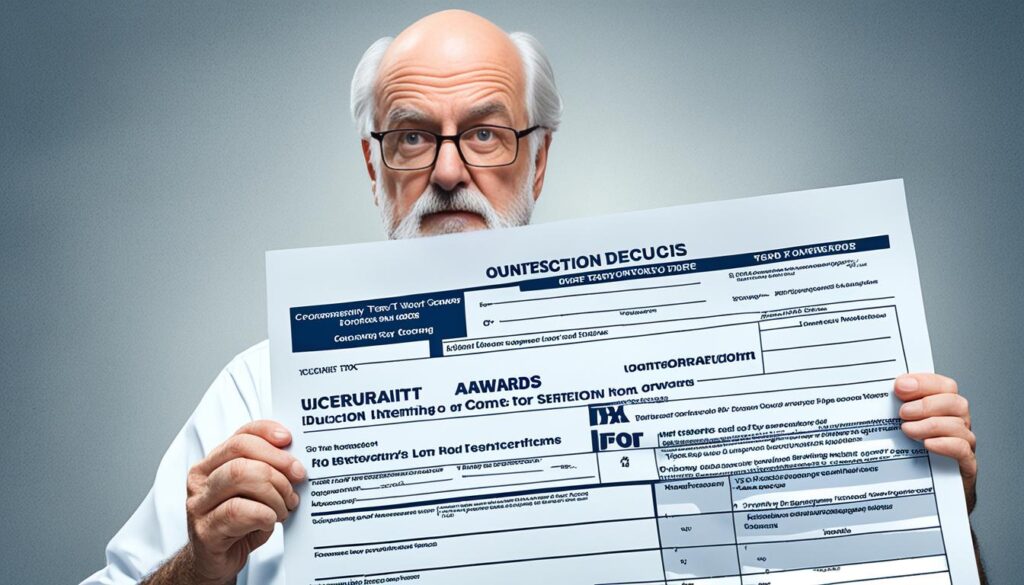Employees treasure bonuses, raises, and long service awards. For them, it shows how much their hard work is valued. But here’s a twist: these benefits can also reduce the tax burden for businesses. Thus, tax benefits of long service awards make recognizing loyalty both meaningful and beneficial.
To gain corporate awards tax deductions, these honors must follow specific IRS guidelines. They must be essential, reasonable, and for earned services. Keeping meticulous records and understanding how these rules apply is crucial for tax savings. This applies to any type of business accounting method.
Here’s the catch: the IRS pays close attention to how closely held businesses compensate their owners. To claim deductions with confidence and avoid fines, do your paperwork. When it comes to extra benefits like vacation pay, be ready for a bit more complexity.
Key Takeaways
- Long service awards can be tax-deductible under certain IRS rules.
- Awards must be ordinary, necessary, and reasonable for deduction eligibility.
- Both cash-based and accrual-based accounting methods impact deductibility.
- Non-cash awards are generally deducted at their fair market value.
- Comprehensive documentation strengthens the corporation’s IRS position.
- Owner-employee compensations undergo more stringent scrutiny.
- Special compensations like vacation pay have unique deductibility criteria.
Understanding Long Service Awards and Their Tax Implications
Long service awards are ways to show thanks for sticking with a company for a long time. They can be in the form of cash, gifts, or extra time off. It’s important to know how these rewards impact taxes for both the giver and the receiver.

What are Long Service Awards?
They celebrate how long an employee has been with the company. You might get one at the 5, 10, or 20-year mark, for example. Rewards vary from cash to things like watches or extra time off.
How Long Service Awards are Generally Handled Tax-Wise
When it comes to taxes on these awards, it depends on what you get. Cash bonuses are pretty much always taxable. For physical gifts, their value counts as taxable income. Yet, the IRS may let some gifts avoid taxes under the right rules. Knowing these details makes dealing with award taxes easier.
Categories of Long Service Awards
| Category | Description | Tax Implication |
|---|---|---|
| Cash Bonuses | Monetary rewards given directly to the employee. | Considered taxable income. |
| Tangible Gifts | Physical items like plaques or watches. | Fair market value is taxable. |
| Experiential Rewards | Experiences such as vacations or extra time off. | May be taxable based on their worth. |
To properly deal with award-related taxes, knowing about the different types of awards and their tax effects is key. Showing you value your employees is very important. But, it’s also vital to understand the tax side of these special rewards.
IRS Rules on Long Service Awards
The IRS has set out clear rules for the tax on long service awards. It’s key for businesses to know these rules. This knowledge helps avoid tax surprises when rewarding their employees.
Conditions for Tax Deductibility
One main condition is that these awards can’t be too much. They have to match the work the employee did. Firms need to keep good records to prove this. Keeping in line with the IRS’s guidelines makes tax filing simpler.
Reasonable Compensation and the IRS Scrutiny
The IRS watches that employees get what is fair. They look at the employee’s job, how often they worked, and the award’s value. If the employee also owns part of the business, things get more closely checked. The details of these awards are closely examined for tax reasons.
Documenting and Valuing Non-Cash Awards
Non-cash awards must be valued fairly for tax deductions. Keeping good track of these awards is very important. Setting up clear programs helps employees and the business follow IRS standards. Knowing how the IRS views non-cash awards can help with taxes.
| Condition | Requirement |
|---|---|
| Reasonable Compensation | Must align with industry standards, employee role, and services performed |
| Detailed Documentation | Keep comprehensive records in financial documents |
| Fair Market Value | Non-cash awards must be valued at current market rate |
| IRS Scrutiny | Ensure transparency, especially for employee-owners |
Are Long Service Awards Tax Deductible?
One big question about recognizing employees is: Are long service awards tax deductible? The good news is that they might be. But, there are specific IRS rules you must follow. It’s crucial that any awards are given under IRS-approved plans.
These plans can’t show any favoritism. They have restrictions on the amount given, too. Fail to stick to these guidelines and tax deductions are off the table. For awards in cash, the process is easier. But, for non-cash awards like gift cards, you need to have specific records and values.
So, are long service awards tax deductible? Yes, they can be if you’re careful. Companies need to make sure they follow every IRS rule. This includes correct reporting of both cash and non-cash awards. By doing this, companies both save money and avoid future issues.
Here’s a simple breakdown for easier understanding:
| Requirement | Description |
|---|---|
| Qualified Plan | Must not favor highly compensated employees; stays within monetary limits. |
| Cash Awards | Straightforward; considered taxable income. |
| Non-Cash Awards | Requires documented proof and accurate valuation. |
| Reasonable Compensation | Must adhere to IRS standards to avoid scrutiny. |
Conclusion
Navigating the tax implications of long service awards can be like hiking a mountain without a map. But, there’s a way to make sense of it. It’s crucial for businesses to understand IRS rules for getting the most out of these awards. By checking your programs against rules, keeping detailed records, and making sure things are clear and organized, you can avoid problems.
For employees, a well-designed reward can be very exciting. But if not handled correctly, these bonuses can bring tax issues. It’s very important to follow the rules on how much to give and to record the rewards properly. Failing to do this can lead to trouble with the IRS and you might have to pay fines. With careful planning and a detailed approach, you can get tax benefits for these awards.
Using these awards is great for keeping your employees happy and staying with your company. But, it’s vital to have a tax expert help. They can guide you through the tricky tax laws and IRS rules. To enjoy all the tax advantages, it takes being well-informed and planning smartly. So, gather your team, make sure everything is in order, and let the service awards benefit everyone involved.








